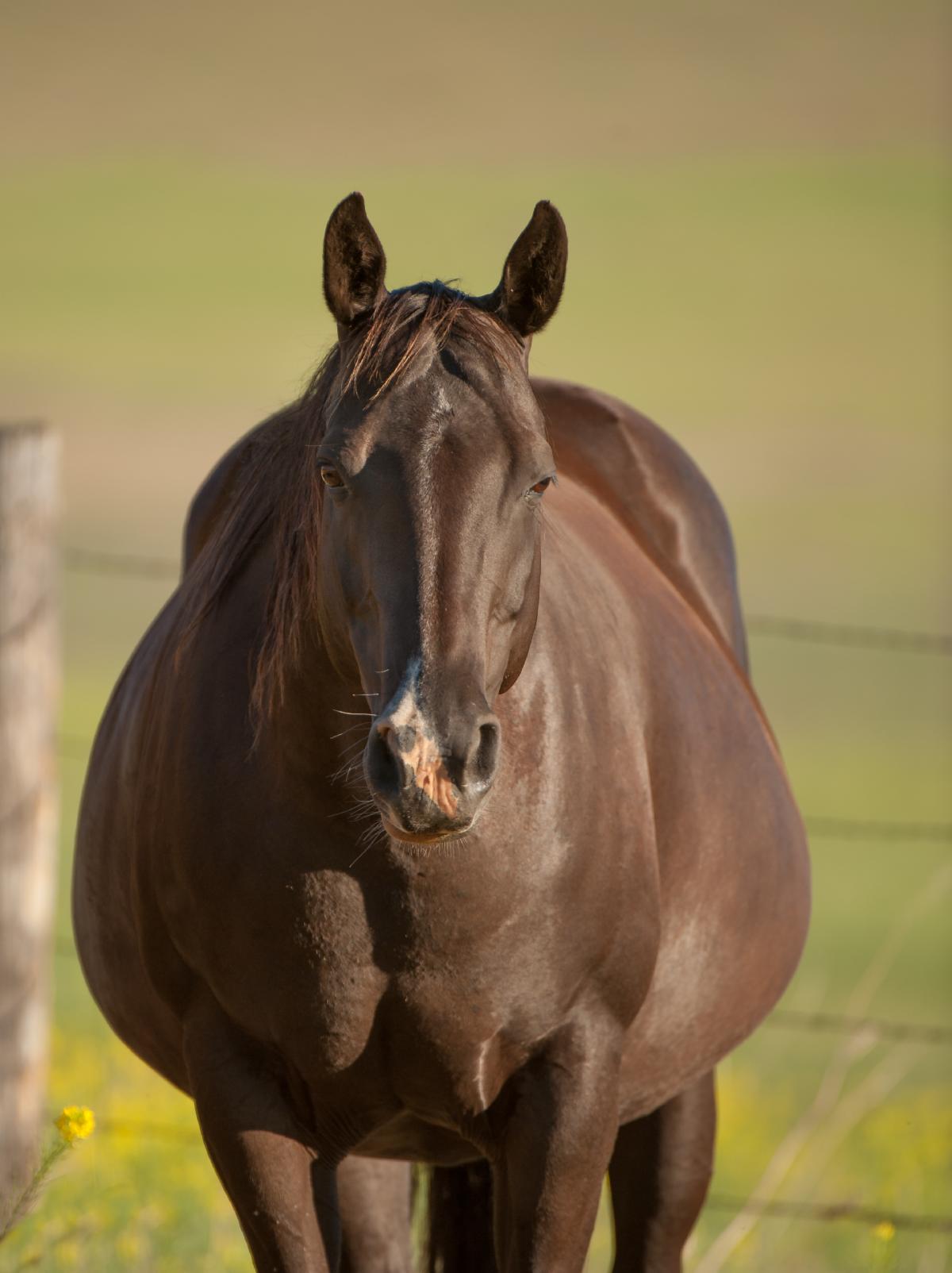During pregnancy, the mare’s daily nutrient requirements allow her to maintain her own body condition and nutrient requirements, as well as support those of the growing fetus. Gestational weight gain can be around 12-15% of the mare’s initial body weight, mostly made up of fetal and placental tissues. Proper nutrition during pregnancy will set your broodmare up for successfully raising a healthy foal. Follow these tips on nutrition for the pregnant mare.

Weight Management
The amount of energy, or calories, a mare needs above maintenance levels typically doesn’t elevate upwards until the fifth month of gestation as the fetus undergoes most of its development. A 1,200-pound mare requires approximately 20,000 calories per day in early gestation and increases to 26,000 during late gestation. The best way to know whether your broodmare is eating enough calories is by Body Condition Scoring (BCS), evaluating the amount of fat deposited on the ribs, along the neck and spine, and behind the shoulder. The typical scoring system uses a 1 to 9 scale, where a horse with a score of 1 is emaciated and 9 is obese. Ideally, a broodmare should be at least a BCS of 5.
What little we know about restricting calories during pregnancy suggests that broodmares with a low Body Condition Score (BCS) during pregnancy will most likely result in underdevelopment of the fetus and reduced placental function. When an outbreak of Streptococcus equi affected Thoroughbred mares mid-pregnancy, causing a loss of about ten percent of their bodyweight, foals born from these mares weighed around five percent less at birth compared to foals from healthy mares (Wilsher et al., 2006). However, this is a severe case of weight loss and moderate reductions in weight during pregnancy don’t appear to have such a drastic effect on foal birth weight.
Obesity of the mare appears to generally affect hormone concentrations in the foal, with particular concern for future development of metabolic disorders. A recently published study compared insulin sensitivity and glucose tolerance to different diets in foals from normal or obese mares at six, twelve and eighteen months of age. Obese mares produced more insulin resistant foals at six and eighteen months of age (Robles et al., 2018). Also, more yearlings from obese mares were affected by osteochondrosis lesions versus yearlings from normal mares, but no differences between the offspring were detected at six or eighteen months of age.
Forage
A broodmare’s diet should consist of at least 1.5% of her body weight in forage for proper digestive function. Considering the length of a mare’s gestation, you are more than likely going to need some combination of pasture and hay. If your broodmare is on pasture, make sure to know the species of grasses that are growing in that pasture. Most tall fescue grass in the US is infected by a fungal endophyte. Consumption of this endophyte-infected fescue in late gestation can cause early term prolonged pregnancy, retained placentas and even foal death. When pasture isn’t available, hay that is nutritious and safe should be provided. Same with fescue hay - unless tall fescue hay has been tested and is known to be endophyte-free, it should not be fed to pregnant mares.
Feed
Broodmares may be able to meet most of their nutrient requirements with forage alone up until the 5th month of gestation. Forage alone won’t be able to provide the protein, amino acid, mineral and vitamin requirements necessary to support the foal’s growth rate, so consider either adding in a commercial grain mix specifically for broodmares or a ration balancer. If the mare is losing weight during the last 6 months of her pregnancy, consider feeding a commercial grain specifically targeted for pregnant mares. Most commercial grains for pregnancy include calorie sources from fat and fiber and 14-16% crude protein with guaranteed amounts of the amino acid lysine. If the mare can maintain a BCS of 5 or above easily with forage, add a ration balancer to provide essential amino acids, minerals and vitamins not provided for in the pasture or hay but necessary to support fetal growth.
Take Home Message
A broodmare’s nutritional requirements begins to change after the 5th month of pregnancy and meeting those requirements is vital to supporting the growth and development of the foal. Reach out to your veterinarian or equine nutritionist for help in balancing your broodmare’s diet.